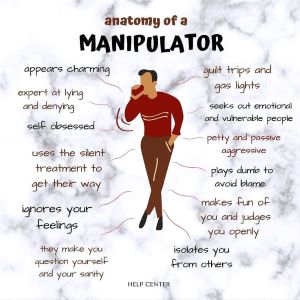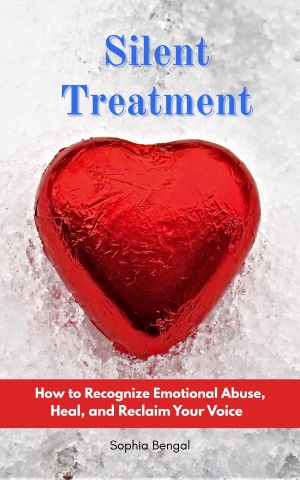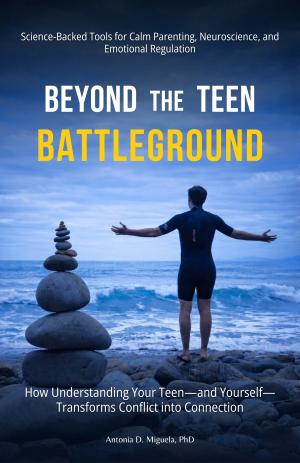Silent Treatment: How to Recognize Emotional Abuse
In the field of psychology, the term «the silent treatment» is used as another form of psychological or emotional abuse or mistreatment through silence. It’s a behavior that some people exhibit in their emotional relationships, consisting of ignoring the other person or their demands or questions by remaining silent. Accustomed as we are to more obvious and violent forms of abuse and mistreatment, it is often more difficult to identify since it is defined as solely emotional abuse.
The list of behaviors we could consider emotional or psychological abuse is, unfortunately, quite long. The silence in emotional communication with our partner can be used as a terrible weapon of psychological abuse . This often occurs when one person has complete power over the other in a relationship and is aware of their emotional commitment. This is why we don’t usually perceive this type of behavior as mistreatment. However, it is important and necessary to disseminate these types of behaviors, what they imply, and how damaging they can be.
The book that inspired this article is NOW AVAILABLE FREE DOWNLOAD until august 16:
How is the silent treatment given?
- This type of treatment ignores the needs of another person with whom we have an emotional bond, which is nothing more than an expression of passive violence.
- There is a clear attitude of indifference or coldness toward the other person’s feelings, and therefore, much harm can be done.
- The other person’s feelings are belittled and they are even made to feel guilty for being pushy or demanding «too much love.»
- Silence in situations where an emotional response of some kind is demanded for a considerable period of time is therefore a disguised mechanism of psychological abuse.

This type of behavior usually occurs when there is some kind of conflict between two people. However, what differentiates it from a common conflict or a simple attempt to understand and control the other person is that the victim doesn’t even know such a conflict exists.
This lack of communication is what produces a type of real psychological torture in the victim.
Silences, half-truths and emotional riddles
Even if there is communication, sometimes the information the other person receives is delivered almost drop by drop. Other times, it’s done in such a convoluted or vague way that it forces the other person to constantly doubt the emotional veracity of what is being said.

A typical example of this situation is when communication is not in person and virtual communication is used to avoid telling the whole truth or to hide our true feelings.
This is when resources such as:
- Respond with emoticons instead of clear words or phrases
- make an excuse for having to answer at that moment and therefore
- Postpone the response for later or to do it in person. This may never happen, or only if they feel truly compelled to do so by the other person’s insistence.
The frequent use of these resources is clear evidence that we are dealing with people who have serious emotional deficiencies such as empathy . As psychologist Sergio de Dios González verifies , «This type of behavior is quite harmful. Not only does it denote immaturity, meanness, and a lack of emotional intelligence, but it can also have serious effects on the other person. It constitutes an attempt to humiliate others and represents nothing positive for a relationship .»

The abuse of indifference: «He’s like a block of ice»
“ The worst sin toward our fellow human beings is not to hate them, but to treat them with indifference; this is the essence of humanity .”-William Shakespeare-
Ignoring someone or condemning them to silence for hours or days can be pure psychological torture. The other person doesn’t really know what’s going on in the «insensitive» person’s mind. It’s very easy to fall into a loop of guilt, trying to explain the silences. By remaining uncertain about what’s going on in the other person’s heart, the victim is essentially suffering from a simple lack of communication.
The reasons for silence and emotional distance
When the victim insists on the need for emotional communication, things can get worse. This is because the person who tries to ignore or temporarily create an emotional vacuum will feel threatened. They may also feel forced to give a response they are most likely trying to avoid. The reasons can be very varied and range from:
- insecurity or lack of emotional development,
- blockages due to failures in previous relationships,
- fear of commitment or
- pure interest in maintaining a relationship that contributes to him (sexually or emotionally) and where he finds himself in a position of power.
The silent treatment is a common practice among seemingly rational people with a high level of self-control . They are thoughtful individuals who analyze and mull over situations to find arguments that justify their emotionally cold behavior toward their loved ones. The real problem is something else.

The silent treatment is evidence of emotional problems or immaturity.
Truly, when someone tries to create physical or emotional distance from another person with whom they have an emotional bond, they are revealing a problem. This demonstrates a weakness in their emotional relationships or insecurity about their own feelings. They struggle to establish an emotional bond with another person. Ultimately, they show immaturity or an emotional disability to maintain a healthy relationship based on communication and mutual affection.
The type of people who give others the silent treatment are often described as «insensitive,» manipulative, cold, calculating, devious, etc. They often have thick emotional shells that prevent them from not only falling in love or making a commitment, but also block other people from reaching out to them.
In an abusive relationship (consciously or unconsciously on the part of the abuser), the other person often refuses to engage in dialogue, postpones it, or tries to avoid it. Sometimes it’s a matter of buying time due to their own emotional insecurities. Other times, it’s done to avoid a commitment and, at the same time, avoid ending the relationship and depriving themselves of what it brings. In other words, maintaining the best of both worlds: having a partner who loves you and does their best for you, and emotional independence.
Silence as a weapon and shield
The person who suffers silence or feels ignored in their demands or questions about the relationship may reach a state of mental breakdown. Despite this, the person practicing this silence or distance will try to find ways to make them feel guilty about the situation. They will seek more or less well-founded reasons to justify their behavior. They will thus attempt to hide the true reasons for the emotional void they are subjecting the other person to. These reasons always point to the victim as guilty for having an erroneous or different point of view. Furthermore, the victim may even pose as a victim of potential harassment. However, it cannot be considered harassment when the relationship continues freely.
The victim of the silent treatment may fall into a process of self-esteem destruction . They may suffer from impotence and severe emotional pain from constantly receiving negative reinforcement.
A disguised form of psychological abuse
Basically, they tend to constantly encounter a wall or emotional distance, which they are also accused of having caused by their persistence. In these cases, if the relationship continues voluntarily on both sides, it’s clear there’s a power imbalance where emotional suffering is prevalent.
This type of behavior is very damaging to the other person. That’s why the silent treatment is considered a form of psychological and emotional abuse . If someone we care about acts this way, a whole series of negative emotions will accompany us throughout the conflict process. This conflict will be difficult to manage as long as the lack of dialogue and communication persists. This will drive you crazy, and the problem will only get bigger.
Silence, used with malicious intent, is a powerful weapon intended to control, abuse, punish, and humiliate others.
Effects of the silent treatment
-It causes emotional stress and trauma: Ignoring someone can cause the other person to experience intense negative feelings of devaluation and incomprehension because they cannot interpret the reason for the silence.
-Feelings of sadness and/or depression: When you ignore someone, you are implicitly and directly accusing them in a disguised and covert way. For that person, the relationship becomes toxic and painful.
-Feelings of anger, fear, and guilt: These feelings stem from the anguish of not knowing what’s causing the situation or what you’re doing wrong. In addition, not being taken into account leads to feelings of helplessness.
– Psychological stress: Along with the emotional roller coaster described above, not only is self-esteem and self-worth destroyed, but stress levels also increase, leading to sadness, loss, disorientation, and abandonment, leaving the victim feeling out of control.
-Changes in the brain: According to recent studies, the «law of silence» can cause changes in the brain, specifically in the anterior cingulate cortex, which detects different pain thresholds in humans. Being excluded and ignored causes this area of the brain to become active when someone is given the law of silence.
Seeking help or letting yourself be helped
If you’re being subjected to this type of torture, all the power to get out of this situation rests in the other person’s hands. The only thing you can do is try to talk it over calmly, even at the risk of them blaming you for persisting, which often happens.
The person who uses silence as a weapon or shield may not be aware that there are healthy and necessary silences. However, there are also other types of hostile silences that must be stopped. It’s clear that no one can force someone to talk, especially if one of the parties doesn’t want to. If this is your case, you should be aware that your behavior is considered psychological abuse. Furthermore, the other party may suffer serious physical and mental health consequences.
Whatever your position in this type of conflict, the important thing is that both parties are willing to approach each other and communicate . An unresolved conflict won’t become nonexistent just because one side ignores it; but the silent treatment will undoubtedly make the situation worse. And the person who feels ignored experiences that silence as a sea of doubts and questions that can be worse than physical torture.

Therefore, whether you’re a man or a woman, the key lies in knowing how to detect and nip this type of behavior in the bud. Each person’s endurance will depend on their level of self-esteem, emotional dependence, previous experiences, personal circumstances, and certain personality traits.
If you enjoyed this article, I recommend the book which is NOW AVAILABLE FREE until august 16. You can also read for free with Kindle Unlimited:








